- トップページ
- 日本国内での取り組み
- JICA中部
- 「人」明日へのストーリー
- My internship in Japan, where I learned “Ikigai” (Mr. Biya Girma HIRPO and Maruhachi Tent Co.Ltd.) ~Interview to JICA Long-term Participant Part 1~
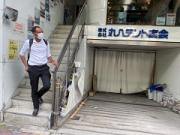
Assistant Lecturer at Addis Ababa University Former JICA Intern at Maruhachi Tent Co.Ltd Former JICA Long-term Training Program
Mr. Biya Girma HIRPO Participant, earned MA in Architecture and design at Nagoya Institute of Technology (JICA Training Course: ABE Initiative 2018-2020) He is from Federal Democratic Republic of Ethiopia
We interviewed Mr. Biya Girma HIRPO, former JICA Chubu Intern at Maruhachi Tent Co.Ltd. He aquired a MA at Nagoya Institute of Technology, under the ABE Initiative (Master's Degree and Internship Program of African Business Education Initiative for Youth) at JICA. In the next edition, we will interview Mr. Shunichiro Hara at Maruhachi Tent Co.Ltd., where he interned.
(Interviewer: Mieko ARAKI, Training Program Division, JICA Chubu)
In the past, you were astonished by the fact that Japanese elders are so active, but did you experience something surprise at Maruhachi Tent Co.Ltd.(hereafter referred to as Maruhachi) during your internship such as cultural differences?
By the time I started the internship, the following two points surprised me a lot; 1)The Japanese intern students work late until 7:00 pm even though the working period is until 5:00 pm. 2)When there is a phone call from a customer, all strive to pick the phone at the first ring.
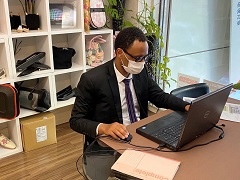
Biya-san working at the Maruhachi office
You have worked hard at Maruhachi by designing tent architecture and preparing 2D and 3D drawings including the project you involved with the museum in Hakone. Could you share with us what you learned at “Gemba” concretely?
-Level of detailing! Every part of the work was carefully planned and drawn on paper. On the site, we just did as it was drawn. No major modification was needed. That is why construction works in Japan are completed on time.
-Garbage collection! In my country construction sites are filthy and full of dust. Here every day after work, we collect garbage and put it in a basket. Therefore at the end of the day, we had a neat environment.
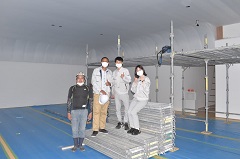
Inside Pola museum after completing ceiling work with team Maruhachi
-Safety first! Every morning before starting a job we say, ‘ご安全に’ which means ‘safely’. As a result all workers really take care to avoid injuries. On the other hand, almost all site workers were smokers. I was concerned about their health and company life.
You completed the MA in Architecture and design at Nagoya Institute of Technology and you plan to teach at a university in Ethiopia. Please pick up and tell us one thing that you had changed and/or improved such as perspective or your own growth thanks to
Maruhachi greatly influenced the way I see success in business. In Ethiopia, the major motivation for starting a business is to get rich quickly. However, your purpose, goal, and contribution have to be the major motivator. When you do with purpose, you will excel in that particular field. This helps you to achieve what you want. I really like the Japanese concept生き甲斐 (Ikigai) as it demands you to find your purpose in life.
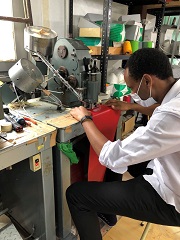
Practicing how to make a bag from tent material
During your internship period, you experienced a “remote intern” due to a state of emergency. Thanks to the adversity, did you happen to learn or find something unexpected?
Thanks for technological advancements, remote internship became a great opportunity for students as it allows working from home or from their country. I also experienced this during the period of state of emergency and now I am considering continuing my internship activity after I returned to Ethiopia. However, during the remote internships, student’s activities will be limited as some work needs physical connection.
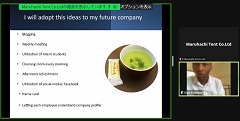
Biya-san shared his special Maruhachi internship experience with the JICA short term training participants via online from Ethiopia
Please give some advice to the JICA long-term training participants who are planning to do an internship!
Here are my advices;
-Look for a company that is related to your field of study. Some students get bored if they don’t understand what the company is working on.
-Try to improve your Japanese language ability.
-Communicate and participate actively with anyone in the company.
-Improve your skill and knowledge on a given subject. For example, learn software that is widely used in the company.
-Show your potential and contribute something so that they consider working with you in the future.
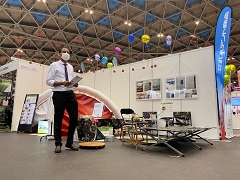
On Exhibition at port Messe Nagoya
※In the next edition, we will interview Mr. Shunichiro Hara at Maruhachi Tent Co.Ltd., where he interned.




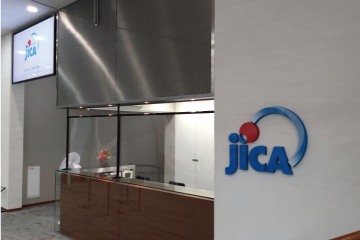

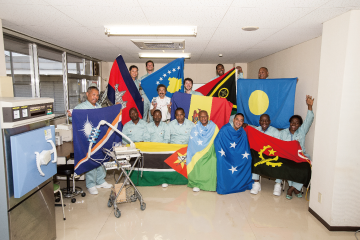

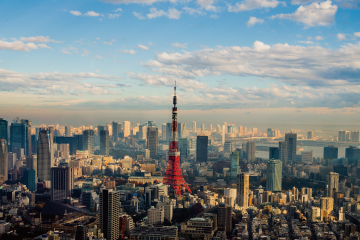
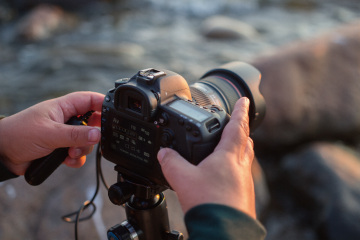


scroll